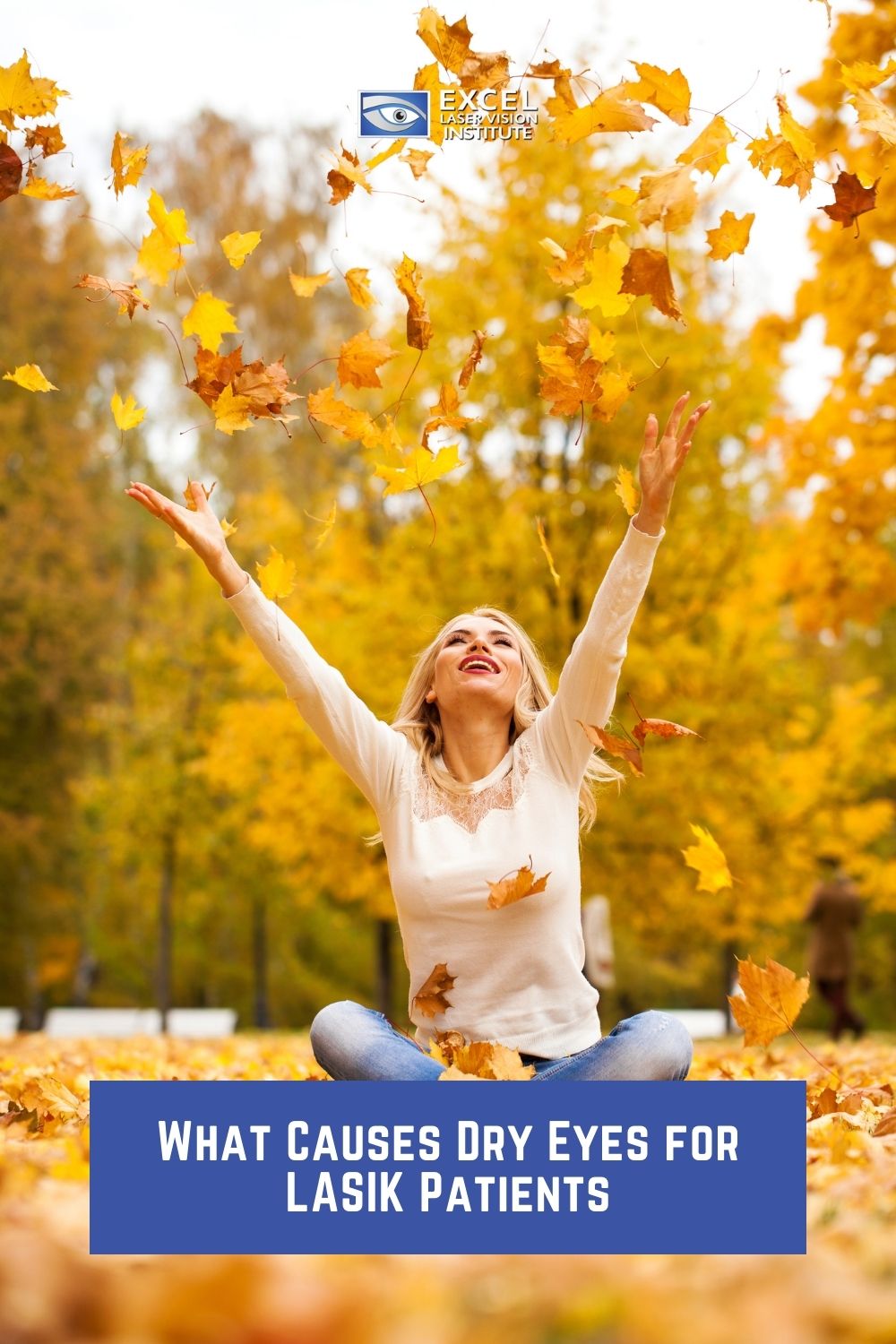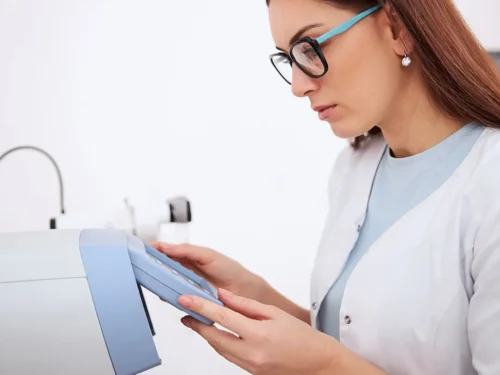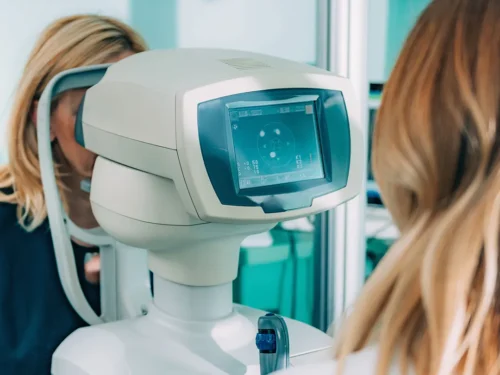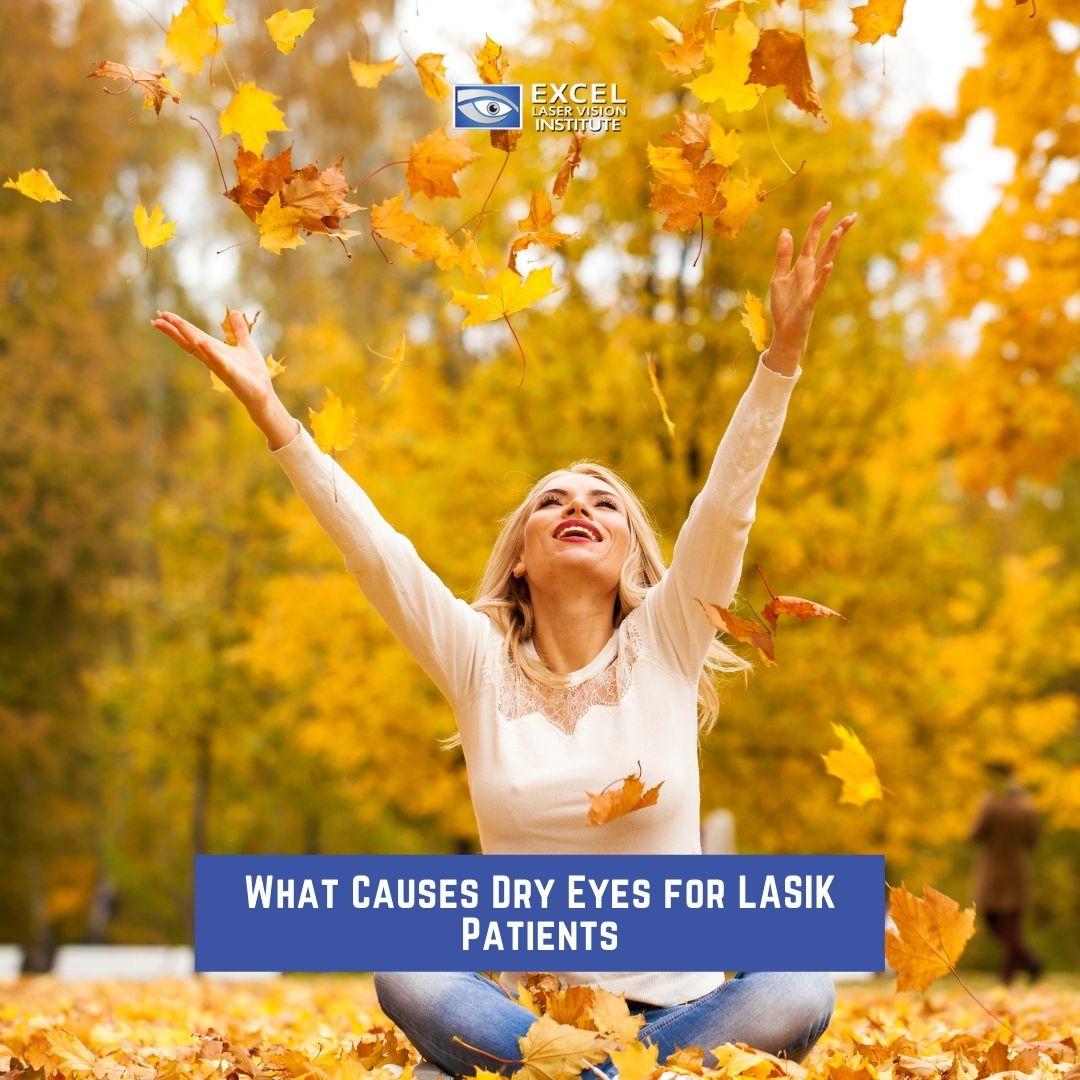
Patients who come to get LASIK in Los Angeles complaining of dry eyes are told that their eye condition is a chronic lack of lubrication and moisture on the eye’s surface. The eye needs a sufficient and consistent layer of tears on its surface to maintain eye health, remain comfortable, and help a person to see correctly.
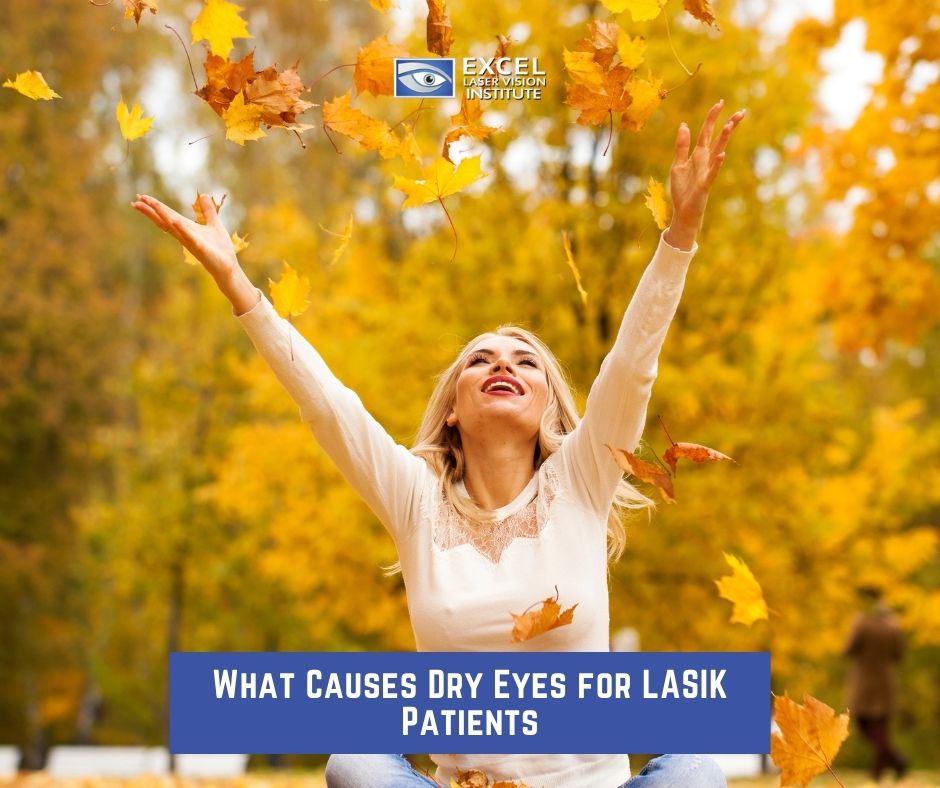
Laser vision correction doctors in Los Angeles told us that tears wash the eye’s surface to keep it moist and clear away dust, debris, and microorganisms that could harm the cornea and cause an eye infection.
A normal tear film includes three crucial components:
An oily (lipid) component created by meibomian glands in the eyelids
A watery (aqueous) component is produced by lacrimal glands found behind the outer visible feature of the upper eyelids.
A mucous-like (mucin) component created by goblet cells in the conjunctiva that covers the white of the eye (sclera).
Each component of the tear film has an important role. For instance, tear lipids help keep the tear film from vaporizing too quickly and boost lubrication. Mucin helps anchor and spread the tears throughout the surface of the eye.
The outcome of dry eyes stretches from subtle but consistent eye irritation to serious inflammation. Also, it could cause scarring of the front surface of the eye.
Besides being known as dry eye syndrome, dry eye disease, or just “dry eye,” alternative medical terms used to characterize dry eyes include:
Keratitis sicca. Typically used to describe dryness and inflammation of the cornea.
Keratoconjunctivitis sicca. Used to talk about the dry eye that affects the cornea as well as the conjunctiva.
Dysfunctional tear syndrome. Used to stress that poor quality of tears can be as critical as low quantity.
What Causes Dry Eyes?
There are many causes of dry eyes:
Aging – Dry eye syndrome can happen at any age, but it becomes more common when you get older, particularly after age 50.
Menopause – Post-menopausal women are at higher risk of dry eyes than men of the same age.
Computer use – When working at a computer, using a smartphone or other portable digital device, we usually blink our eyes less completely and less frequently. As a result, there is greater tear evaporation and an increased risk of dry eye symptoms.
Contact lenses – It can be challenging to understand how much worse contact lenses can make dry eye issues. However, dry eyes are the main reason why people stop wearing contacts.
Indoor environment – Air conditioning, ceiling fans, and air heating systems all can lower indoor humidity. This can accelerate tear evaporation, leading to dry eye symptoms.
Outdoor environment – Dry climates, high altitudes, and dry or windy conditions amplify dry eye risks.
Air travel – The airflow in the cabins of airplanes is very dry and causes dry eye problems, particularly with frequent flyers.
Smoking – Besides dry eyes, smoking has been associated with critical eye issues, including macular degeneration, cataracts, and uveitis.
Health conditions – Specific diseases such as diabetes, thyroid-associated conditions, lupus, rheumatoid arthritis, and Sjogren’s syndrome can result in dry eye issues.
Medications – Many prescription and nonprescription medicines boost the risk of dry eye symptoms, including antidepressants, antihistamines, specific blood pressure medications such as beta-blockers or diuretics, and birth control pills.
Eyelid problems – Incomplete closure of the eyelids when blinking or sleeping, known as lagophthalmos), can result in severely dry eyes. Severe dryness can cause a corneal ulcer if left untreated. Lagophthalmos has many origins, including eye infections, natural aging, and nerve damage from trauma or cosmetic blepharoplasty.
LASIK – LASIK and other corneal refractive surgery can sometimes result in dry eyes. In most situations, however, dry eye discomfort after LASIK is short-term and clears up within a few weeks of the procedure. If you have dry eyes before your Los Angeles LASIK, your eye doctor may recommend dry eye treatment before your procedure to ensure your best corrective eye surgery results.
Wearing a mask – Many masks, particularly those worn to protect against the spread of COVID-19, can dry the eyes because they force air out the top of the mask and over the surface of the eye. When you wear glasses with a mask, the air can pass over the eyes even more.
Allergies – Allergies can result in dry eyes, and as mentioned above, taking antihistamines to relieve allergies can also result in dry eyes.
Dry Eye Symptoms
Symptoms and signs of dry eyes and dry eye syndrome are the following:
Sore eyes
Dryness sensation
Red eyes
Itchy eyes
Aching sensation
Heavy eyes
Fatigued eyes
Mucus in or around the eyes
Discomfort when wearing contact lenses
Burning sensation
Feeling like something is in your eye
Photophobia (light sensitivity)
Blurred vision
As strange as it may come across to some LASIK patients in Los Angeles, watery eyes can also be a symptom of dry eye syndrome.
The reason for this is dryness on the eye’s surface can sometimes bring about the overproduction of the watery part of your tears as a kind of protective mechanism. However, this “reflex tearing” does not remain on the eye long enough to repair the underlying dry eye condition.
Besides these symptoms, dry eyes can cause inflammation and sometimes permanent damage to the eye’s surface.
Also, dry eye syndrome can affect the results of LASIK and cataract surgery. So be sure that you don’t suffer from dry eyes when you ask for Lasik eye surgery cost.
Treatment And Prevention Of Dry Eyes
Dry eye syndrome is an ongoing and chronic condition. Revolving around its cause and severity, it may not be completely curable.
Nevertheless, in most situations, dry eyes can be managed successfully. Normally, treatment results in greater comfort, fewer dry eye symptoms, and, in some instances, sharper vision.
Here is a list of dry eye treatments that eye doctors typically use to lower the symptoms and signs of dry eyes. Your ophthalmologist may prescribe only one of these dry eye treatments or a mix of treatments, depending on the cause(s) and seriousness of your condition.
Artificial tears eye drops
Restasis
Xiidra
Steroid eye drops
Lacrisert
Punctal plugs
Meibomian gland expression
Warm compresses
LipiFlow
Intense pulsed light
Nutritional supplements
If you suffer from dry eyes, do not hesitate to get in touch with Excel Laser Vision Institute. These expertly trained LASIK doctors will help you recover from your dry eyes and also prepare those who wish to do LASIK after their dry eye conditions.


